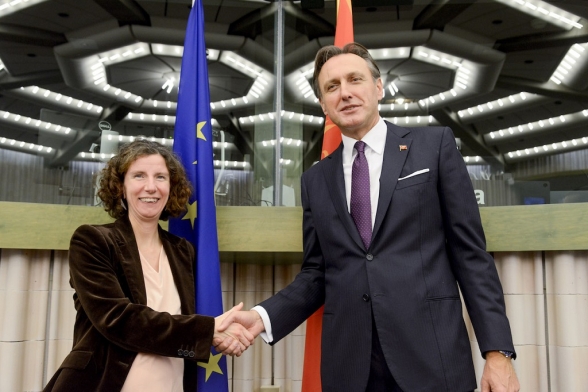The eleventh meeting of the Stabilisation and Association Parliamentary Committee, which have gathered members of the European Parliament and the Parliament of Montenegro in Strasbourg, was opened by President of the Parliament of Montenegro Mr Ranko Krivokapić, who characterised the current year as a great year for Montenegro. Mr Krivokapić stressed that a certain progress had been made, and that he was particularly proud of the Parliament in that context and the fact that the legislative and institutional form was completed. However, he added that there were challenges and that there were steps forward and backward in history, and Montenegro made a step backwards when it comes to the election process.
Speaking of the election process, Mr Krivokapić said that political corruption represented a particular danger for it, specifically its existence at the state level and pointed out to the importance of establishing mechanisms that would create permanent trust in the election process and contribute to the continuation of reforms. He added that there must be the political will for finding solutions. President Ranko Krivokaipić stressed that there was dualism at the protests: “one part were justified requests for free and fair elections, and that part has entered into implementation by initiation of the parliamentary dialogue, and thus the other part of the dualism has been revealed - anti-NATO motives”.
Mr Krivokapić asked the assistance of the European Union in establishing the Research and Documentation Centre, in line with the decision of the Parliament of Montenegro, which would act preventively in the event of an attempt of deleting or rewriting history.
In her address to the participants, SAPC Co-Chair Ms Anneliese Dodds voiced pleasure over the opening of the additional chapters in the negotiation process, an in the same time, expressed worries with regard to insufficient progress particularly in the field of the rule of law, judiciary, fight against corruption and organised crime and freedom of media. In addition, Ms Dodds expressed regret because the meeting was not attended by a part of the Montenegrin Parliament delegation, which was boycotting parliamentary activities. She added that the boycott could not produce results and that the issues must be resolved through parliamentary dialogue.
Mr Nicolas Schmit, Minister of Labour, Employment, Social and Solidarity Economy, who spoke at the meeting on behalf of the Council, stressed that Luxembourg remained an advocate of enlargement policy and that the future of the Western Balkans countries had been and would be within the European Union. He announced the organisation of the Intergovernmental Conference, where Montenegro is to open additional two chapters, namely: 14 - Economic and monetary policy and 15 - Energy.
Mr Dirk Lange, Head of Unit for Montenegro at the European Commission's Directorate-General for Neighbourhood and Enlargement Negotiations, addressed the present on behalf of the European Commission. He voiced pleasure over the announced opening of additional chapters, and pointed out to the importance of establishing necessary institutions which would ensure the rule of law and give results in the area of fight against corruption and organised crime. Referring to the forthcoming year as the electoral one, Mr Lange welcomed the initiative of the President of the Parliament to gather leaders of political subjects in the Parliament, and voiced expectance that the constructive dialogue would contribute to achieving positive results.
Today’s meeting addressed the topics of recently held protests in Podgorica, but also issues of the rule of law and electoral legislation. The participants of the eleventh meeting stressed that it was important to return the dialogue of political subjects in the Parliament, but also to resolve all issues related to ensuring fair and free elections in the proper manner.
The eleventh SAPC meeting will be continued tomorrow.









